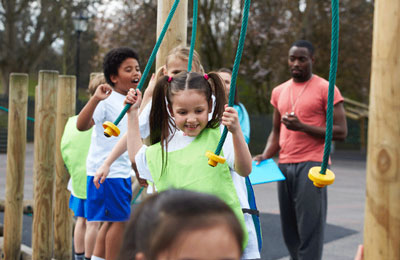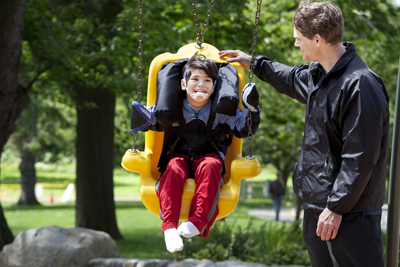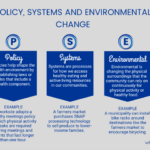
Jul 18, 2018 | News
 Working Well invites proposals for presentation during the upcoming Working Well Fall Training, which will be Wednesday, November 7 at the William L. Yates Conference Center in Columbia, S.C. This year’s training will focus on “A New Era of Employee Wellbeing: Exploring how culture, operations, and purpose can build a resilient, thriving, and fulfilled workforce.”
Working Well invites proposals for presentation during the upcoming Working Well Fall Training, which will be Wednesday, November 7 at the William L. Yates Conference Center in Columbia, S.C. This year’s training will focus on “A New Era of Employee Wellbeing: Exploring how culture, operations, and purpose can build a resilient, thriving, and fulfilled workforce.”
Presentations are designed to provide evidence-based resources and best practices to attendees that spark action in their own worksite wellbeing programs. Working Well is looking for employers, both Working Well and non-Working Well employers. who have demonstrated success in integrating comprehensive elements (i.e. policy, systems, operations, built environment, benefits, communication, etc.) through a collaborative approach.
Presentations should be no more than 60 minutes, and should address one or more of the following topics:
• Fostering Employee Resiliency
• Workforce Development
• Recruitment and Retention
• Professional Fulfillment
• The Future Workforce
• Integration of Safety & Wellbeing
• Integrating any of the above topics
Visit the Working Well website to see more details about the presentation categories and to submit your proposal. The deadline to submit your proposal is Friday, August 17. Proposals will be received from anyone, regardless of Working Well engagement.
Registration is open to all as well. Non-Working Well attendees will have a $25 fee for attendance, while Working Well employers are free. Non-Working Well presenters will have a free registration. Register for the training here.
If you have any questions or issues, contact Sara Grace Bailey at sbailey@scha.org.
Jun 21, 2018 | News

Jun 20, 2018 | News
 South Carolina’s communities have the first of many opportunities to apply for mini-grants to fund small-scale projects that are needed to help catapult their healthy eating and active living initiatives. Eat Smart Move More South Carolina will award Let’s Go! 3.0 mini-grants over the next three years that will increase the capacity of community coalitions in South Carolina to identify and address barriers to healthy eating and active living.
South Carolina’s communities have the first of many opportunities to apply for mini-grants to fund small-scale projects that are needed to help catapult their healthy eating and active living initiatives. Eat Smart Move More South Carolina will award Let’s Go! 3.0 mini-grants over the next three years that will increase the capacity of community coalitions in South Carolina to identify and address barriers to healthy eating and active living.
Applications are being accepted now for the first round of mini-grants until July 15. The application process is open to community coalitions and organizations that need assistance in implementing policy, systems, and environmental changes that will increase access to healthy, affordable foods and safe places to be physically active. The mini-grants, up to $5,000, can be used to implement projects, such as adding bike racks downtown, beautifying neighborhood parks or trails, or supporting local farmers’ markets.
For more information about the Let’s Go! 3.0 initiative and to submit an application, visit www.eatsmartmovemoresc.org.
These opportunities are funded through a grant from the BlueCross BlueShield of South Carolina Foundation, an independent licensee of the Blue Cross and Blue Shield Association.

Jun 20, 2018 | News
 As schools wrap up another academic year, findings from a project aimed at improving the health of South Carolina’s children highlight the benefit parents and communities can gain by including physical activity in children’s schedules over the summer and beyond.
As schools wrap up another academic year, findings from a project aimed at improving the health of South Carolina’s children highlight the benefit parents and communities can gain by including physical activity in children’s schedules over the summer and beyond.
While positive steps have already been taken in South Carolina to address the issue, the state still faces a high childhood obesity rate. According to the SC FitnessGram project, nearly 37 percent of South Carolina’s youth are obese or overweight and almost half of them do not meet health-related standards for heart-lung fitness when tested on physical activities such as brisk walking or running.
This statewide effort to evaluate and improve health-related fitness among public school students is funded by BlueCross BlueShield of South Carolina Foundation as part of a partnership that includes the South Carolina Department of Health and Environmental Control (DHEC), the South Carolina Department of Education and the University of South Carolina.
“The Foundation’s commitment to a healthier South Carolina starts by creating healthy habits in our children,” Foundation executive director Erika Kirby said. “We know that healthy students learn better. For the first time, we have statewide health-related fitness data that can be used to shape and support quality physical education efforts in South Carolina. We remain focused on the health of our children and will use these numbers as an example of the continued work to be done.”
While it has long been known that South Carolina has an obesity problem, this is the first time our state has compiled comprehensive data of this kind. Thanks to the statewide FitnessGram software and the partners that have collaborated on this effort, there is now a way of tracking the problem and, more importantly, of coming up with ways to combat it.
“The SC FitnessGram project provides important findings that are a great benefit to our state. It’s critical that we continue to support greater health-related fitness outcomes for our state’s K-12 students,” said USC President Harris Pastides.
During the 2016-2017 school year, over 100,000 students from over 700 schools in 60 school districts participated in the project. The program was administered by physical education teachers to students in the second, fifth and eighth grades and high school. FitnessGram assesses components of fitness that are known to be related to health outcomes in children and youth.
“The health and nutrition of South Carolina’s students has a strong impact on their future and productivity later in life,” said State Superintendent of Education Molly Spearman. “The collaborative support from both the public and private sectors in the SC FitnessGram project has provided educators and communities with valuable data to make informed decisions about the well being of our young people. I look forward to continuing our work and ensuring that South Carolina students are prepared for success.”
Obesity has important consequences on South Carolina’s health and economy. The economic cost of obesity in S.C. is estimated at $8.5 billion per year and growing. Obese and overweight children are at risk for several serious health problems such as coronary heart disease, stroke and diabetes.
“Increasing physical activity is a critical strategy to prevent childhood obesity and decrease the risk for numerous adverse health outcomes,” said Dr. Lilian Peake, DHEC director of Public Health. “Overcoming obesity is a significant challenge that South Carolinians must tackle together. It will take a concerted effort by parents, schools, community organizations, health care centers and others to help improve the health of our students.”
School-age youth need 60 minutes or more of physical activity every day. In an effort to encourage more physical activity among South Carolina’s youth, several recommendations have been developed that people can use at home, in schools, and around their communities.
The full SC FitnessGram report, as well as other information related to obesity and fitness, can be found on the SCaledown website at scaledown.org/fitnessgram.
For more information, contact:
- BlueCross Blue Shield of South Carolina Foundation: Shawn Skillman, Media Relations, (803) 264-2211, email: shawn.skillman@bcbssc.com
- South Carolina Department of Health and Environmental Control: Adrianna Bradley, Media Relations, (803) 898-3315, email: bradleal@dhec.sc.gov
- South Carolina Department of Education: Ryan Brown, Office of Communications and Governmental Affairs, (803) 734-5080, email: RyBrown@ed.sc.gov
- University of South Carolina: John Brunelli, Office of Communications and Public Affairs, (803) 777-3697, email: Brunelli@mailbox.sc.edu
![Healthy People, Healthy Carolinas Grant Opportunity]()
Jun 12, 2018 | News
 The Duke Endowment is currently seeking new applications for Healthy People, Healthy Carolinas, a program to improve community health outcomes in North Carolina and South Carolina. This opportunity is designed to support up to five new or existing South Carolina community coalitions in their efforts to improve population health through:
The Duke Endowment is currently seeking new applications for Healthy People, Healthy Carolinas, a program to improve community health outcomes in North Carolina and South Carolina. This opportunity is designed to support up to five new or existing South Carolina community coalitions in their efforts to improve population health through:
- Applying the Collective Impact Framework;
- Enhancing community capacity to implement evidence-based interventions addressing physical activity/nutrition and early identification and prevention of chronic disease(s); and
- Monitoring performance metrics to spur improvement.
Healthy People, Healthy Carolinas is intended to drive improvement in outcomes and be transformative to community coalitions by enhancing the ability to build partnerships and applying new evidence-based approaches to optimize community health. View the complete RFP here.
Potential applicants must first participate in a one-hour webinar that provides an overview of the initiative and information about the application process. Applications will be sent only to those who participate in the webinar.
Applications are due to The Duke Endowment by 5:00 PM on July 2, 2018. Apply online here.
The Duke Endowment is working with the South Carolina Hospital Association (SCHA) to provide technical assistance for Healthy People, Healthy Carolinas. Questions? Contact Laura Cole, Manager of Care Transitions at SCHA, at 803.454.6968 or lcole@scha.org.

May 15, 2018 | Community News, Mini-Grant Success News, News
KELSEY ALLEN, MPH, CHES
 “To see a child who doesn’t have what their little heart cries out for, that’s what saddens me. There needs to be something for those children. We need to have something to serve those with disabilities in our community,” says City of Laurens Councilwoman Sylvia Douglas.
“To see a child who doesn’t have what their little heart cries out for, that’s what saddens me. There needs to be something for those children. We need to have something to serve those with disabilities in our community,” says City of Laurens Councilwoman Sylvia Douglas.
Councilwoman Douglas first brought up the idea of having inclusive play equipment in the City of Laurens 10 years ago. At that time and until this year, there was no play equipment like this in the City of Laurens. One of the barriers that she was facing in seeing this move forward was cost.
According to Councilwoman Douglas, hospitality tax can often offset the cost of this equipment as it is a draw for parents of children with special needs, who live outside of the city, to bring their children to use the City of Laurens parks. Today, she is thrilled to know that there is a now a swing for children with physical disabilities at Little River Park in Laurens. It is her hope and intention that there will be more to come.
“I think this shows that we are enlightened to this issue and we are looking out for this part of our community,” she says.
Brie Holmes, Chair of the Eat Smart Move More Laurens County, is also excited for this wonderful resource to now be available in Laurens.
“Opportunities for physical activity should not be exclusive to those without physical limitations or special needs. Inclusion and accessibility should be included in every discussion around our built environment, playgrounds especially. Healthy adults start as healthy children, and healthy children get outside and play! Every child deserves that opportunity.”
Creating change in our communities is possible with perseverance and partnership. This would not have been possible without the support of the mayor and city council of Laurens. Additionally, the city administrator, the Laurens County Disabilities and Special Needs Board, and ESMM Laurens County also supported this project. If you feel passionate about seeing these types of changes in your community, be encouraged that change often doesn’t happen quickly, but it is certainly possible.
Thank you, Councilwoman Douglas and the rest of the City of Laurens for this great addition to the parks!

 Working Well invites proposals for presentation during the upcoming Working Well Fall Training, which will be Wednesday, November 7 at the William L. Yates Conference Center in Columbia, S.C. This year’s training will focus on “A New Era of Employee Wellbeing: Exploring how culture, operations, and purpose can build a resilient, thriving, and fulfilled workforce.”
Working Well invites proposals for presentation during the upcoming Working Well Fall Training, which will be Wednesday, November 7 at the William L. Yates Conference Center in Columbia, S.C. This year’s training will focus on “A New Era of Employee Wellbeing: Exploring how culture, operations, and purpose can build a resilient, thriving, and fulfilled workforce.”






